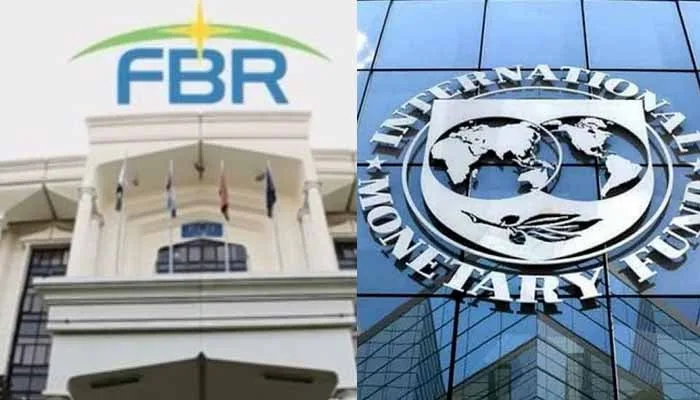Prime Minister Shehbaz Sharif has directed officials to create a concrete plan for boosting Pakistani beef exports to Malaysia, signaling Islamabad’s intent to diversify its trade ties with the Southeast Asian nation. The move highlights an untapped opportunity in halal meat exports while strengthening long-standing economic relations between the two countries.
Pakistani Beef Exports to Malaysia and Trade Potential
The decision to focus on Pakistani beef exports to Malaysia comes at a time when Pakistan is seeking export-led growth to recover from its prolonged economic crisis. Malaysia is already one of Pakistan’s largest trading partners in Southeast Asia, primarily as a supplier of palm oil. However, halal meat remains a largely underutilized sector in bilateral trade.
Pakistan produces around 2.2 million tons of beef annually, according to the Pakistan Bureau of Statistics, with exports valued at over $500 million in 2024. Malaysia, on the other hand, has an annual halal meat market worth more than $2 billion, making it a lucrative destination for Pakistani exporters if the right frameworks are established.
Shehbaz Sharif’s Directive on Beef Exports
During a high-level meeting via video link from New York, where he was attending the United Nations General Assembly, Shehbaz Sharif emphasized the urgency of preparing a viable and sustainable plan for Pakistani beef exports to Malaysia. He stated that there is “enormous potential in Pakistan-Malaysia trade” and urged relevant institutions to move quickly in capitalizing on this opportunity.
The prime minister also highlighted the depth of ties between Islamabad and Kuala Lumpur, noting that Malaysia has always stood by Pakistan in difficult times. These brotherly relations, established in 1957, are further strengthened through cooperation in international organizations such as the OIC and the Commonwealth.
Role of the Malaysia-Pakistan Closer Economic Partnership Agreement
A critical framework for enhancing Pakistani beef exports to Malaysia is the Malaysia-Pakistan Closer Economic Partnership Agreement (MPCEPA), which came into force in 2008. The agreement provides preferential market access for goods from both sides, making it easier to expand trade in untapped areas like halal beef.
With Pakistan already exporting beef to Middle Eastern markets such as the UAE and Saudi Arabia, leveraging MPCEPA could help Pakistani exporters establish a foothold in Malaysia’s competitive halal food sector.
Economic Benefits of Beef Exports
Expanding Pakistani beef exports to Malaysia would deliver several economic benefits for Islamabad. First, it would support Pakistan’s ongoing push for export-led growth. The International Monetary Fund (IMF) recently stressed that Pakistan needs to diversify its exports beyond textiles to stabilize its economy.
Second, beef exports could open up employment opportunities in rural areas where livestock farming is a primary livelihood. According to the Food and Agriculture Organization (FAO), over 8 million rural households in Pakistan are engaged in livestock farming, making this sector vital for inclusive economic growth.
Finally, success in Malaysia could serve as a gateway to other ASEAN markets, which collectively represent a halal food market exceeding $150 billion annually.
Challenges in Beef Export Expansion
While the potential is high, challenges exist in scaling up Pakistani beef exports to Malaysia. Compliance with international halal certification standards is critical. Malaysia enforces strict halal guidelines through its Department of Islamic Development (JAKIM), and Pakistani exporters must align with these standards to ensure acceptance.
Infrastructure bottlenecks also pose hurdles. Cold chain facilities, slaughterhouse modernization, and veterinary health standards need to be upgraded to meet the expectations of premium export markets. Moreover, consistent supply and competitive pricing will determine Pakistan’s long-term success in Malaysia.
Strengthening Bilateral Trade Relations
Beyond the halal meat sector, the focus on Pakistani beef exports to Malaysia is part of a broader effort to deepen bilateral economic relations. In 2024, trade between the two nations reached nearly $2 billion, with Pakistan importing palm oil and other agricultural products while exporting textiles and rice.
By expanding into beef exports, Pakistan aims to reduce its trade imbalance with Malaysia, which has traditionally leaned in Kuala Lumpur’s favor. This diversification could pave the way for more balanced and sustainable trade growth.
The emphasis on Pakistani beef exports to Malaysia reflects a strategic shift in Pakistan’s economic policy—moving from dependence on traditional export markets to tapping into new and emerging opportunities. If executed properly, the plan could transform Pakistan into a competitive player in the global halal food industry, strengthening its position in Southeast Asia and beyond.
With Malaysia’s halal market continuing to grow and Pakistan’s livestock sector offering strong supply potential, the timing is right for both countries to seize this opportunity. The coming months will determine how effectively Islamabad can implement Shehbaz Sharif’s directive and convert policy into tangible export gains.
The directive from Prime Minister Shehbaz Sharif to promote Pakistani beef exports to Malaysia highlights the government’s focus on unlocking new trade opportunities. By leveraging the Malaysia-Pakistan Closer Economic Partnership Agreement, addressing infrastructure challenges, and ensuring compliance with halal certification standards, Pakistan can strengthen its economic partnership with Malaysia while boosting its export earnings.
If Pakistan successfully expands into Malaysia’s halal meat market, it will not only enhance bilateral trade but also mark a significant step in its broader strategy for export-led economic recovery.



